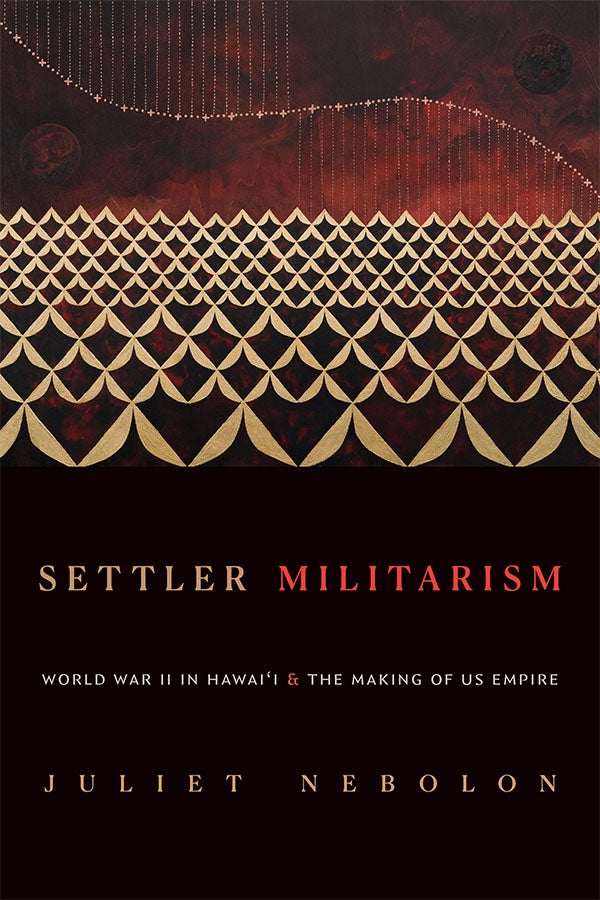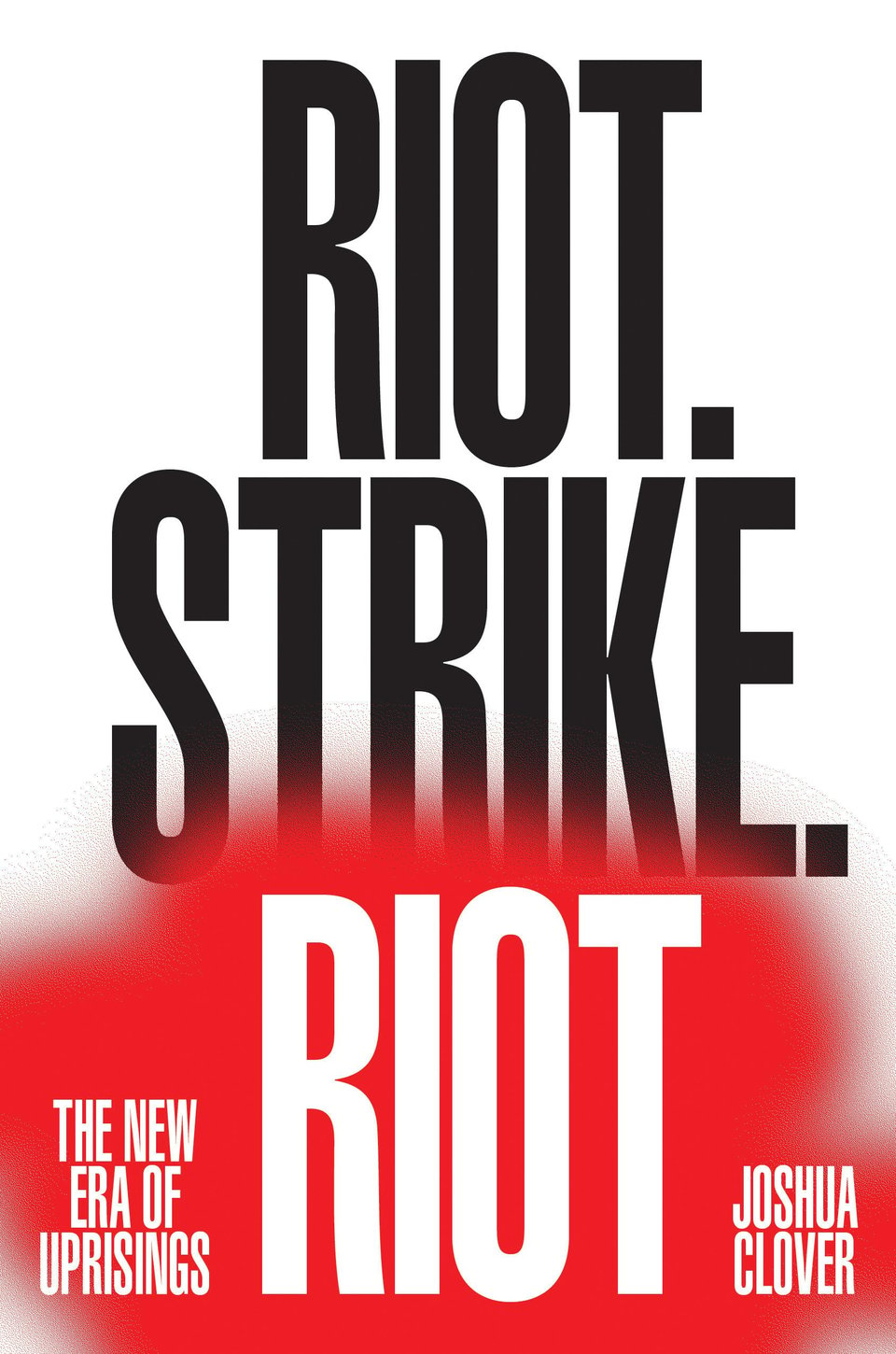Reading Group Week 20
Hello, and happy pride month.
This week we're continuing Settler Militarism: World War II in Hawai'i & The Making of US Empire by Juliet Nebolon

Readings
This week, we're reading chapter 4: "A Citizenship Laboratory": Education and Language Reform in the Wartime Classroom.
| Week | Date | Reading | Call |
|---|---|---|---|
| Week 1 | May 12 | Intro + Chapter 1 | May 17 |
| Week 2 | May 19 | Chapter 2 | May 24 |
| Week 3 | May 26 | Chapter 3 | May 31 |
| Week 4 | June 2 | Chapter 4 | June 7 |
| Week 5 | June 9 | Chapter 5 + Conclusion | June 14 |
Reflections
Chapter 4: "A Citizenship Laboratory": Education and Language Reform in the Wartime Classroom
... white Americans' tolerance of nonwhite peoples in Hawai'i had produced a debt that could be repaid via contributions to the US war effort. (pg 105)
Long claimed that "the public school program is more concerned with good citizenship than any other single objective. Through school experiences the pupil learns... of his duties and responsibilities to his country." (pg 110)
Studies of bilingual students not only designated a certain level of English proficiency as "optimal", but they also constructed an epistemological hierarchy that stigmatized the language skills of nonwhite students attending schools in Hawai'i as "backward" or "lacking". Research on children in Hawai'i recorded statistics through which to administer, manage, and consolidate Native and immigrant peoples into an Americanized population that had colonial and racialized expectations for normalization and assimilation. (pg 117)
Racial liberal biopolitics manufactured a linguistic hierarchy that centralized English as the standard and portrayed the preference for any other language as a "speech problem" - despite the fact that multilingual and creole language communities had thrived in Hawai'i for generations amid US occupation and racialized labor exploitation. Rather, students' "resistance to change, indolence and indifference" to speaking English would be better understood as an exercise of autonomy that challenged the dominance of this colonial education regime. (pg 119)
This chapter really struck me; I was thinking a lot about the "debt that could be repaid" that was projected upon Arab-Americans after 9/11 and over the past 20 years - and the various programs and projects designed to elicit compliance and collaboration from Iraqis in the 2000s during the invasion of Iraq.
I was also thinking about this "epistemological hierarchy" that the government/military/schools projected on students, after decades of defunding and alienation, to impose upon students to "speak American" (as an aside, can we talk about that at some point?!). And I was thinking about the current projects to surveil students's behavior through the assessment of students' "civility transcripts".
High school students will almost certainly be noted for being absent from classes on days when there are known protests or walkouts for Palestine. They will almost certainly be monitored online for their behavior, comments, and activity around topics like trans rights, environmental justice, abortion rights, and apartheid and genocide. The broad, expansive regime of surveillance of students (across the age range but particularly people under 18) continues to grow, handing off surveillance business to private industries in data mining and AI. All of this so that the University of Chicago's administrators like Jim Nondorf can finally rest easy without the fear of getting "brittle students".
What if the "brittleness" of young people is better understood as a strident lack of patience for an entire generation of pencil-pushing, half-asleep bureaucrats doing bullshit jobs and convincing themselves and others that their tedious mealy-mouthed drivel is substantively important? Last year we saw high school students get up and walk out of classes to protest the genocide of Palestine. This year valedictorians and graduating classes are watching pre-recorded graduation speeches, after Logan Rozos, an NYU graduate, spoke about the human rights abuses and the genocide that Israel is perpetrating against Palestine right now (the video in this link is 2 minutes, and worth watching IMHO).
Who's brittle?
Reading superintendent Long's relief at the dissolution of foreign language classes and his and other disparaging assessments of Hawaiian students, I can't help but think how impressive, brave, and ingenious all those young people were, and how utterly we squander and crush youths throughout history to force them into a mold for this colonial, militaristic agenda that so clearly fails without constantly feeding the machine with violence and oppression against vulnerable people.
I'm thinking a lot more these days about the statistical systems people are building to monitor and judge students, and how these administrative and algorithmic systems resemble the war front/home front environment that kids in Hawai'i lived through. At one point there's a photo of kids casually treating a wound and I thought about how routine it must be for kids these days to run drills in the event of a school shooter.
Jim Nondorf doesn't want brittle students, though. Remember that.
One additional thought: I wanted to relay this bit of Edward Said's essay "Between Worlds" about his experience as a child at Victoria College in Cairo, Egypt:
The school's first rule, emblazoned on the opening page of the handbook, read: 'English is the language of the school; students caught speaking any other language will be punished.' Yet there were no native English-speakers among the students. Whereas the masters were all British, we were a motley crew of Arabs of various kinds, Armenians, Greeks, Italians, Jews and Turks, each of whom had a native language that the school had explicitly outlawed. Yet all, or nearly all, of us spoke Arabic – many spoke Arabic and French – and so we were able to take refuge in a common language in defiance of what we perceived as an unjust colonial stricture.
I don't really have much more to say that's not already obvious; just that there are clearly parallels in how the schools in Hawai'i policed and pathologized the use of pidgin and refusal to speak English and Edward Said's experiences in Egypt, thousands of miles away but going through school at the same time and undoubtedly experiencing similar but different oppressive powers.
something extra
As Katrina-Ann R. Kapā'anaokalāokeola Nākoa Oliveira argues, "One of the best ways to disempower a people is to burrow into their minds, infecting and incapacitating them at every level of consciousness, while simultaneously stripping them of their language - thereby erasing their historical memory and undermining their traditional knowledge systems." (pg 116)
I feel obliged to remind you all of what Refaat Alareer wrote, about Israel's compulsion to destroy Palestinian writers, poets, and artists in "An Introduction to Poetry":
Moshe Dayan, an Israeli general, said that “the poems of Fadwa Tuqan were like facing 20 enemy fighters.” ... And the same thing happened to Palestinian poet Dareen Tatour. She wrote poetry celebrating Palestinian struggle, encouraging Palestinians to resist, not to give up, to fight back. She was put under house arrest, she was sent to prison for years.
I hope you'll take this as a reminder that Zionism and settler colonial oppression doesn't just kill your bodies, but stifles and suffocates your voice, denies you what you know, and strives to erase everything about you and your people. And to resist against that erasure just as we resist all violent colonial oppression.
Share your reflections
I'd like to hear what connections you're making in reading this chapter. I know I'm drawing in some of the books and pieces we've already read, but if you're seeing connections to other things, I'd like to hear about it.
If you'd like to chat with me and/or the rest of the people in the Signal group chat, I'd love to see you there.
Otherwise, let's chat on Saturday at 12pm ET, during the weekly video call.
Other news
Next book
We're rapidly approaching the end of this book, so please think about ordering the next book ASAP: Riot. Strike. Riot by Joshua Clover 
If you buy the book from Open Books, the proceeds will go to Palestinians in Gaza via The Sameer Project. If you can't buy these books via the Open Books shop, please consider donating directly to The Sameer Project.
Support people in need
If you have extra funds, please donate directly to the Sameer Project.
Support the reading group
You can also support the reading group if you have a few dollars to spare per month. Don't worry if you can't support, but if you can, it would help.
Okay, that's everything. If you're in the signal, I'll chat with you there; otherwise, see you either on Saturday for the video chat, or next Monday.